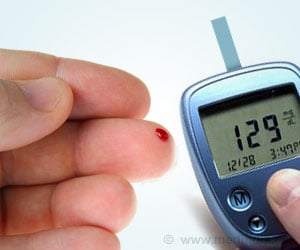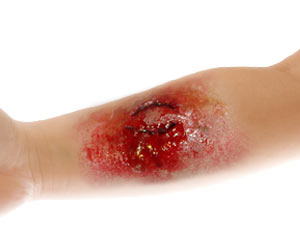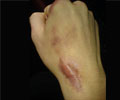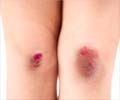Chronic wounds affect around 6.5 million patients in the United States, and an estimated excess of 25 billion dollars is spent annually on treatment.
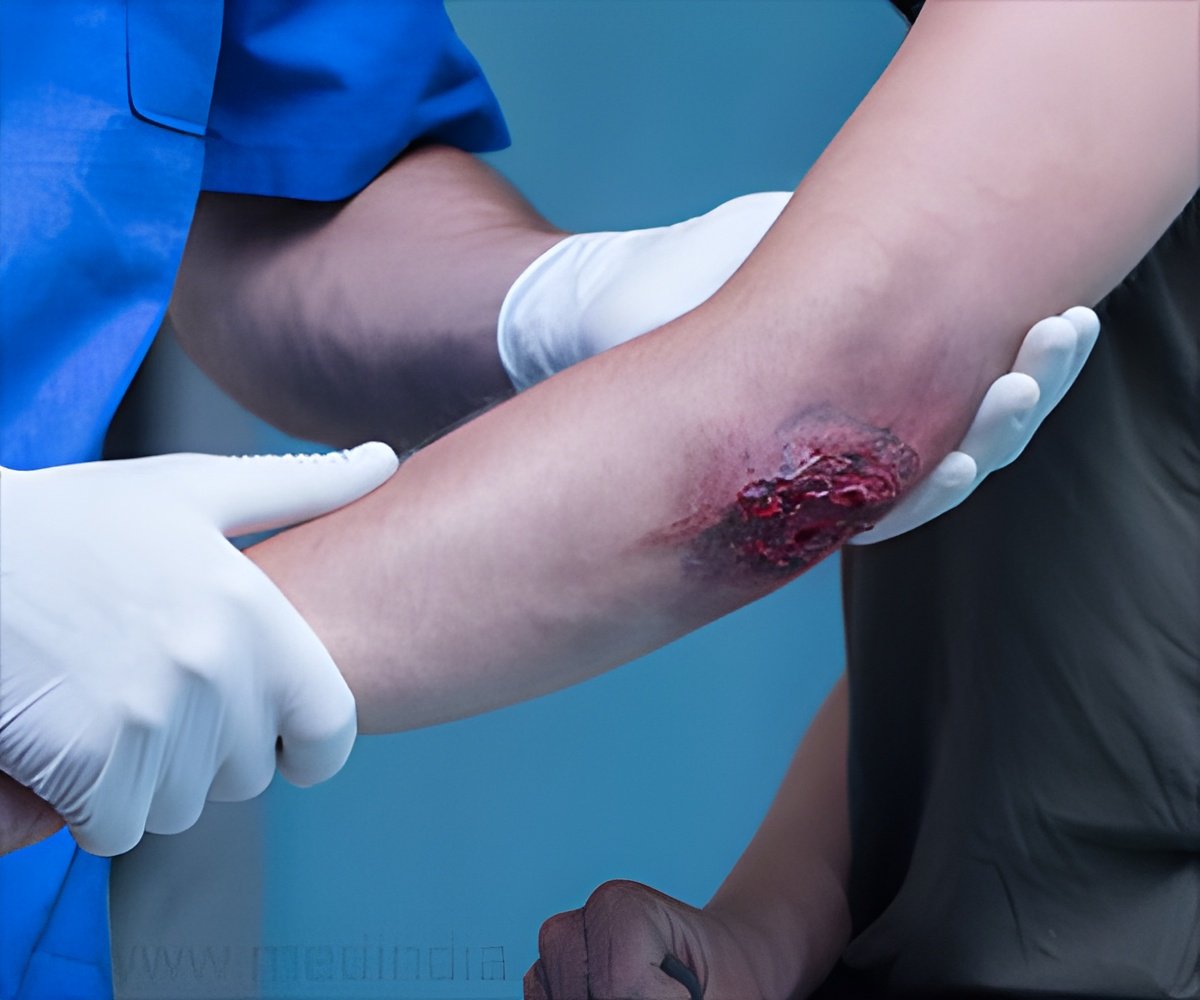
‘An easy-to-apply thin polyelectrolyte multilayer films containing epidermal growth factor (EGF) and TGF-βsiRNA effectively closes dermal wounds and reduces scarring.’





The major challenge in treating dermal wounds is accelerating the healing process while preventing scar formation. Scientists have created layer-by-layer (LbL) polyelectrolyte multilayer films containing epidermal growth factor (EGF) and TGF-β siRNA to improve excisional wound healing and decrease scar formation.
The film carries two different biotherapeutics: one, a growth factor to induce rapid wound closure and the other, a gene silencing RNA that turns off the protein responsible for scar formation. These early studies provide evidence of improved healing as well as evidence of reduced collagen content within wound site. This topical film patch will next be tested on chronic wounds, such as diabetic ulcers. The research team is working to find a better formulation for widely occurring diabetic foot ulcers, as these can result in amputations. Additional research will focus on further improving LbL thin films to overcome some of the challenges in providing a good support matrix to deliver growth factors in diabetic wounds. The film containing growth-inducing factors and scar-reducing factors has been tested in in simple excisional wound animal models, and will further be tested in mouse models. Currently, there is no simple and effective formulation available in the market for these patients, suggesting that further research is warranted.
Source-Newswise


